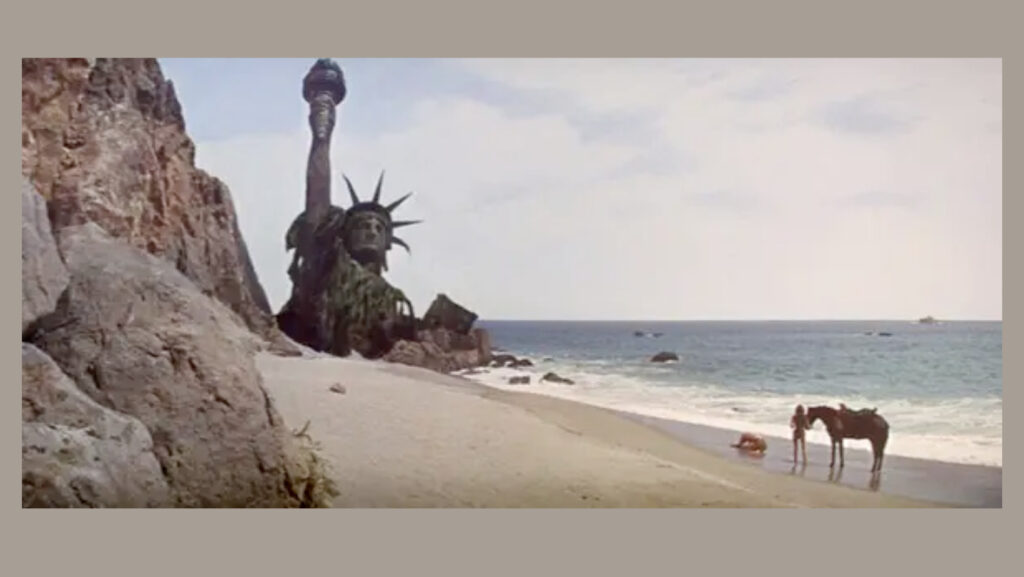To reverse T.S. Eliot’s wonderful poem, The Hollow Men, you want to make sure to end your story with a bang: the end must be as powerful and memorable as your beginning.
Remember the poem from school?
This is the way the world ends
This is the way the world ends
This is the way the world ends
Not with a bang but a whimper
Your screenplay’s ending is as important as your beginning. You’ve heard this before, and surely will again: A story has three parts. A beginning, a middle, and an end. These are your Acts in a narrative feature film. You begin with an engaging opening scene. And you end with one that leaves your reader lost in thought. Or tears.
If you’ve read any of my other blog pieces, you’ll know I like to consider writing screenplays as if writing for an audience of one: a single reader whose undying interest is your job to engage. One enthusiastic reader can usher your story into development and ultimately to the screen, large or small.
You don’t need an actual explosion
Ending with a bang doesn’t mean that literally. Most of the time, it’s a figurative expression. In fact, real explosions, if your story requires them, tend to happen at Act turning points.
Of course, there are plenty of excellent films that do just precisely that: end with a massive explosion.
But there are other ways to end with a bang. This doesn’t necessarily mean a happy ending or a brilliant twist. Although it can certainly mean either.
To end with a bang means you must culminate your story in a way that leaves that single reader so utterly satisfied that s/he sits back, sighs, and immediately forwards the script with a STRONGLY RECOMMEND tag.
Of course, the rest of your screenplay needs to also meet the grade with:
- magnificent characters, cleverly introduced
- an interesting, believable world
- perfectly crafted plot points
- smooth scene sequences
- edge-of-your-seat tension/conflict
- brilliant dialogue
- tightly worded cinematic description and action lines
But your radically gratifying ending will surely seal the deal.
Know your audience’s emotional desires
Twists are fun. Both to write and to watch. But most genres come with built-in audience expectations for the endings. For romcoms, it’s a kiss or proposal. Most horrors end with killing the monster. Know your genre’s audience expectations. Then decide where and how you can manipulate their emotional response, but without exasperating them.
Here’s another list of great movie endings. Examine the ones you know and try to understand why they’re remembered as great, even if you don’t agree.
It’s vital that you, the screenwriter, understand the importance of an ending with an enduring, positive impact. That doesn’t necessarily mean ‘feel good’ – although it can. In this case, a positive impact means it’s overwhelmingly satisfying to the viewer. Whether the ending is tragic (Titanic), poignant (The Truman Show), or delightfully romantic and meaningful (Groundhog Day), a great film fully engages the audience’s emotions. And that they will remember, with pleasure, for a lifetime.
After all, writing for the screen is like playing the violin. A newbie conjures cringes at each screech. Where a master summons tears of joy with every bewitching bow stroke.
Surprise endings aren’t always wonderful
Poor endings are as memorable as great ones. But you certainly don’t want your screenplay to fall into the ‘stupid endings’ category. Here are some examples of lousy movie endings, which you may or may not agree with. A twist or a bang can as easily enrage as delight.
But whatever you do, make sure you have a clear end goal when you sit down to write. Your outline should make it easy. Knowing your ending before you begin to write is considered mandatory.
A tiny handful of pantsers might get away with a stream-of-consciousness approach to storytelling, but the vast majority of screenwriters, even those who say they don’t outline, always know their endings before they write the opening scene. Why? Because great storytelling doesn’t result in glazed eyes and wristwatch-checks.
As the MacMillan Dictionary bluntly puts it, to end with a whimper means: “it ends without success and no one notices or cares much.” Much better to end with a bang.


